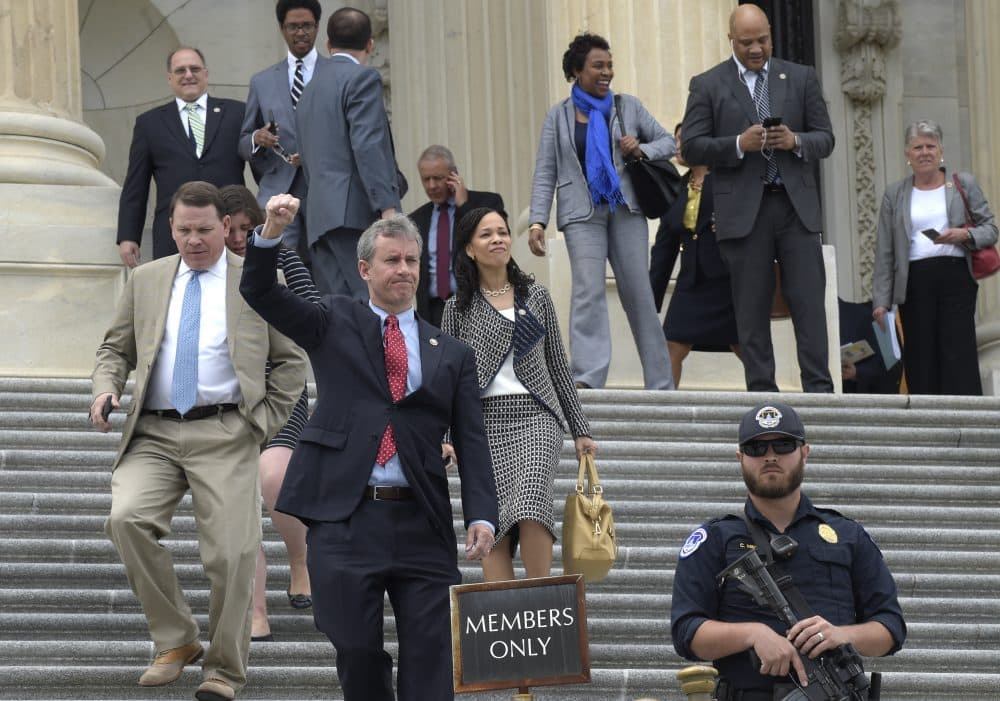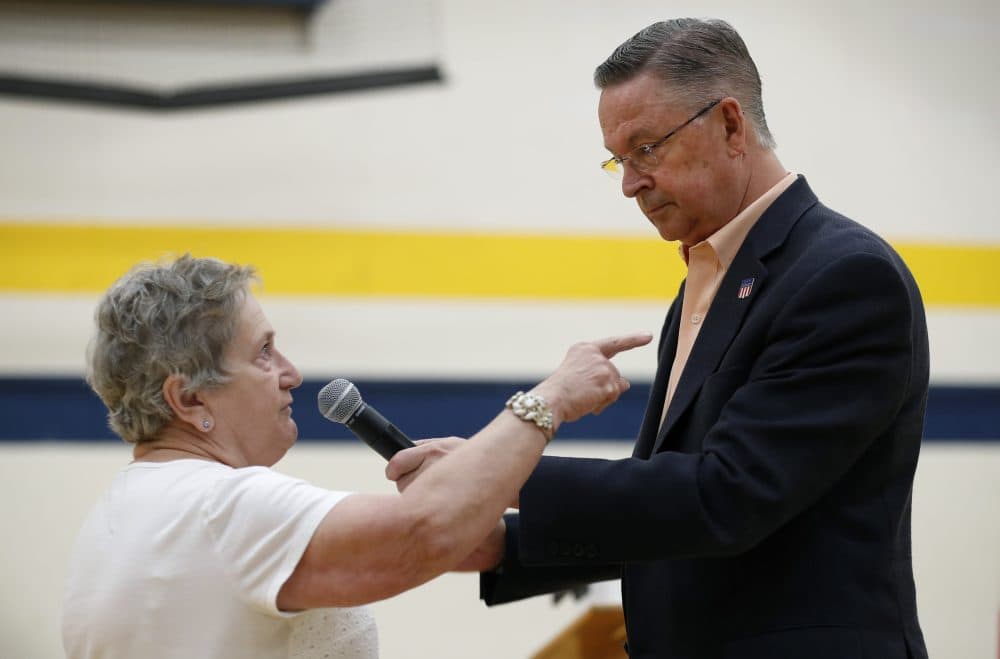Advertisement
Commentary
Single-Payer Health Care Is The Key To Democratic Victory In 2018

What does the Democratic Party stand for? If the best you can come up with is “resisting President Trump,” then we’ve got a problem.
The 2018 midterm elections — a win-or-die moment for America’s gravely weakened liberal party — are less than two years away. So where do things stand right now?
The Republican Party has doubled down on its “small government” mantra by pushing bills that will loosen the reins on private industry. The most sweeping of these bills, the American Health Care Act, cleared the House earlier this month with 217 Republican votes. When the bill passed, House Democrats burst into song, belting out choruses of na na na na, hey hey, goodbye.
There has seldom been a more politically expedient time for the Democratic Party to embrace a single-payer system.
It’s easy to imagine the House Democrats plotting their collective taunt in the chambers of Congress. (“Guys, would the 'So Long, Farewell' song from 'The Sound of Music' make us look too elitist?”) But if the Democrats want their song to sting in 2018, they’ll have to come up with a big league counter-solution to the GOP health care bill — a humane alternative to a cruel and fiscally rotten plan that has proven unpopular in both blue and red states.
That alternative is single-payer health care, a system that would guarantee health care coverage to every U.S. citizen, regardless of pre-existing conditions or personal income. And there has seldom been a more politically expedient time for the Democratic Party to embrace a single-payer system.
The most recent polling data says it all. The Democratic base wants a single-payer system, a slight majority of independents are warming to the idea and even some conservative voters appear to be growing amenable to cutting insurance companies out of the picture.
Thanks to the GOP health care bill's creation and advancement, the Republican Party’s dream of turning American health care over to the private sector is becoming our new, shared reality. And the more voters learn about what this new reality will actually cost them, the less they like it. Idaho Rep. Raul Labrador learned this the hard way at a recent town hall, where he was chewed out by angry constituents for supporting the Republican health care bill. Some of Labrador’s fellow Republicans have refused to even schedule town halls during this month’s House recess.
As Republicans squirm in the public eye, Democrats appear to be sitting back and smiling as campaign donations for 2018 candidates come pouring in. By opposing the GOP health bill but not offering a tangible alternative, the Democrats are essentially embracing a "let the other side fail" strategy not unlike the one that Trump proposed when an earlier version of the bill died in the House: Stand back and let President Obama's Affordable Care Act “explode” from its structural flaws, leaving the American people with nothing to turn to but whatever the Republicans offer.
The lack of a Democratic health care alternative suggests a similar approach — allow the GOP health care bill to either sputter in Congress or ruin lives if it becomes law, ride the resulting wave of fury to a resounding victory in 2018 and then propose ... something.
This is a horrendous strategy. It will leave the Democrats looking even more out-of-touch with the concerns of ordinary people (a perception that the party is already suffering from). Here in Massachusetts, a Democratic stronghold, nobody is singing triumphantly in anticipation of the 2018 elections. People are terrified about whether they will be able to afford medical appointments and prescription drug costs — a question that many Americans were sweating well before Trump and the Republicans took over Washington, D.C. The House Democrats may be salivating for new seats in 2018, but the American people are looking for help, no matter who offers it.

By getting on board with single-payer health care right now, as Republicans push for austerity, Democrats can reassert themselves as the party that cares about ordinary people — the standard bearers of Franklin Delano Roosevelt’s progressive New Deal legacy. In one move, Democrats can acknowledge the shortcomings of Obama's Affordable Care Act, reject the GOP health care bill and commit to something better. But most importantly, calling for single-payer health care will signal that the Democratic Party is finally ready to re-embrace big ideas, swing for the fence and sort the fine details out as they go.
Single-payer health care is exactly the kind of high-concept, visionary goal that the Democrats deliberately shied away from when they chose to support Hillary Clinton’s brand of incrementalist politics, a gamble that paid off poorly in an era of instability and anxiety. Like many big ideas, single-payer is the embodiment of hope — in this case, hope for a healthier and kinder American society in which the worth of a human life is not contingent upon how much capital that human possesses or produces.
If the Democrats won’t stand for that, why should anyone vote for them?
